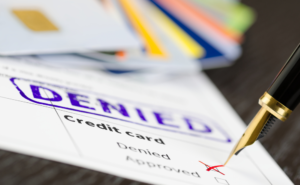A Guide To Prepare Your Credit File For A Mortgage
If you’re thinking about buying a property or modifying a current mortgage, you already know how important it is to pay your payments on time to keep your credit in good shape. Even if you intend to manage your credit responsibly, certain circumstances might throw you off track and harm your credit score.
Lenders usually start by looking at your credit history when determining if you’re the type of borrower they want to work with. When you apply for a mortgage, one or more of the three major credit agencies (Experian, TransUnion, and Equifax) will verify your credit reports and credit scores produced from those reports.
Lenders use credit information to determine if they will grant you a house loan and, if so, how much they would give you and how much interest they will charge.
Hence, you must prepare your credit file for a mortgage and be proactive in taking efforts to safeguard yourself against credit problems.
It’s a good idea to evaluate your credit before applying for a mortgage and take efforts to show it in the best possible way.
Keep A Check On Your Credit Report
You could think you have a good credit score if you regularly pay your bills on time and don’t have a lot of credit card debt. However, our credit ratings aren’t always as good as we assume.
The first step in preparing your credit for a mortgage is to figure out where you are now. This entails monitoring your credit ratings and obtaining copies of your credit reports from each of the three credit agencies to examine the factors that influence them. AnnualCreditReport.com offers free credit reports from Experian, Equifax, and TransUnion.
When you receive your reports, take note of the following:
- Account balances that are too high in comparison to your credit limitations. Your credit ratings will improve if you pay off your debts.
- Accounts that are past due, charge-offs, and accounts in collections are also a factor. If feasible, bring all accounts up to date, and pay off any outstanding collection accounts.
- Payments that are mistakenly labeled as late or missed and loans or credit accounts shouldn’t be there (which might imply illegal behavior). If you find any errors or inaccuracies, file a dispute with the appropriate credit bureau as soon as possible.
Negative entries on your credit reports may go unnoticed if you never check your credit. Some credit reporting inaccuracies can lower your rating, and based on the degree of the damage, you may get rejected for a mortgage.
Don’t Apply for New Credit.
Since it demonstrates a history of managing various forms of credit, having a mix of credit improves your score. While having many types of credit is a good idea, space out your credit applications and do not open a lot of new credit accounts in a short period of time.
Accepting a new loan or credit offer might potentially lower your credit score. These drops are usually only a few points overall, and your scores will rebound in a few months if you continue to manage your credit properly. Still, even minor reductions should be minimized when applying for a mortgage.
Dispute Errors On Your Credit Report
If you find any errors or inaccuracies on your credit report, you must correct them as soon as possible. First, file a dispute with the credit reporting organization and seek to fix the mistake. It’s very unusual for your credit report to have an error, so dealing with it as soon as possible can help you guarantee that your credit report is an accurate and up-to-date reflection of your financial history.
Limit Big Purchases
When determining how much they’re prepared to give you and your credit ratings, mortgage lenders assess your overall debt burden concerning your income, known as your debt-to-income ratio. As a result, it’s a good idea to avoid making large purchases with your credit cards in the weeks preceding your mortgage application.
Even if you have cash and you can pay intangible money on hand, it’s a good idea to avoid making large non-essential purchases in the year or so before applying for a mortgage because lenders will look at your savings—and because putting cash toward a down payment on a home instead of choosing to spend it now could end up saving you thousands of dollars for your loan.
Make Timely Payments
Payment history is another important component in determining your credit ratings. Late payments, particularly recent late payments, can significantly impact your credit score. Make sure you pay all of your bills on schedule in the months leading up to your mortgage application.
If making timely payments for your bills is a problem for you, try adopting technology to assist you: Electronic payments made automatically from your checking account might assist you in avoiding paying late. Calendar reminders and text-message email reminders might also be useful.
Reduce Credit Card Debt
The credit usage ratio — the percentage of your credit card borrowing limits reflected by outstanding balances — is one of the most important factors affecting your credit ratings. Understanding how credit use impacts your credit ratings will assist you in determining the best strategy for paying off your present debts.
If limiting new debt helps you improve your credit, it should be no surprise that paying down existing debt may help you improve your credit. Paying off credit card debt is preferable, but it isn’t always possible in a year or less. Pick the sums to pay off first while paying down your credit cards.
Final Word
When it comes to securing a mortgage, credit score plays a very significant role. Taking efforts now to prep for mortgage applications in the next year can impact the number of mortgage offers you get and the total amount you pay on your loan. When it comes to buying a new house, putting your strong credit foot forward might save you money.
This guide will help you a better look at your credit score if you are planning to file an application for a mortgage loan any time soon. It is a great idea to prepare your credit for a mortgage loan before applying for a credit mortgage.






